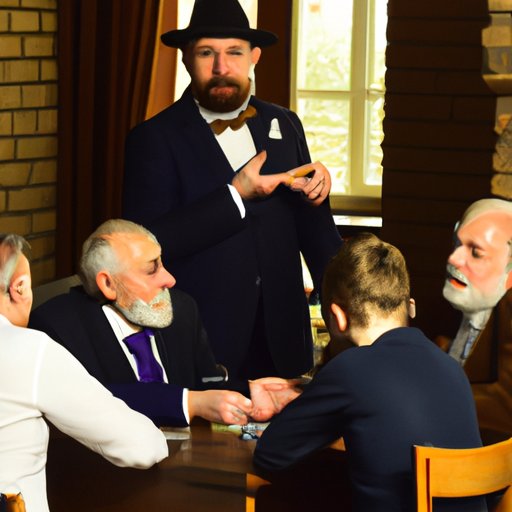
I. Introduction to Freemasonry
Freemasonry is a fraternity that has been around for centuries. It is an organization that is dedicated to making good men better. Freemasonry teaches members the importance of moral and ethical values, as well as how to improve their communities. Becoming a member of Freemasonry is a way to connect with others who share similar values and beliefs.
II. The History of Freemasonry
Freemasonry has a rich history that extends back to the Middle Ages. Its origins are not entirely clear, but many historians believe that it began as a guild for stonemasons. Over time, non-masons were welcomed into the organization as well. Key figures in the organization include John the Baptist, King Solomon, and Hiram Abiff. The symbols and teachings of Freemasonry have evolved over time, but there are certain key values that remain central to the organization’s philosophy.
III. Learning about Freemasonry on Your Own
For those who are interested in joining Freemasonry, there are many resources available for self-education. Books and documentaries can provide an introduction to the organization, while websites and online communities can help prospective members connect with current members and learn more about the day-to-day workings of the fraternity.
IV. The Steps to Becoming a Member
The process of joining Freemasonry begins with finding a local Masonic lodge. Most major cities have at least one lodge. Once you have located one in your area, you can reach out to the lodge and express your interest in joining. Current members will likely invite you to visit the lodge and meet with them. During this initial meeting, you will learn more about the organization’s values and principles. If you decide that Freemasonry is a good fit for you, you can begin the process of joining the fraternity as a Fellowcraft Mason.
V. Understanding Freemasonry Values and Ethics
The cornerstone of Freemasonry is the belief in a Supreme Being. Beyond this core belief, there are many other values and ethics that are central to the organization. These include charity, brotherhood, and moral conduct. Masons are also committed to improving their communities and leading by example. Living life according to Masonic principles can be challenging at times, but the benefits of doing so are immense.
VI. Freemasonry for Women and Other Minority Groups
Freemasonry has historically been an organization for men. However, there are now separate organizations that offer similar teachings and values to women, as well as other minority groups. These organizations have their own unique histories and values, but they are all based on the same principles of Freemasonry.
Conclusion
Becoming a member of Freemasonry is a life-changing experience. It offers the opportunity to connect with others who share similar values and beliefs, as well as the chance to make a positive impact on the world. By educating yourself about the history and values of the organization, you can begin the process of joining the fraternity and experiencing all that it has to offer.




